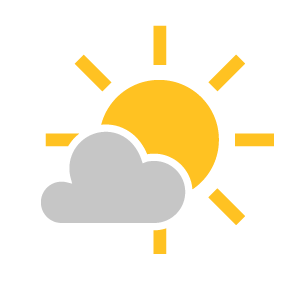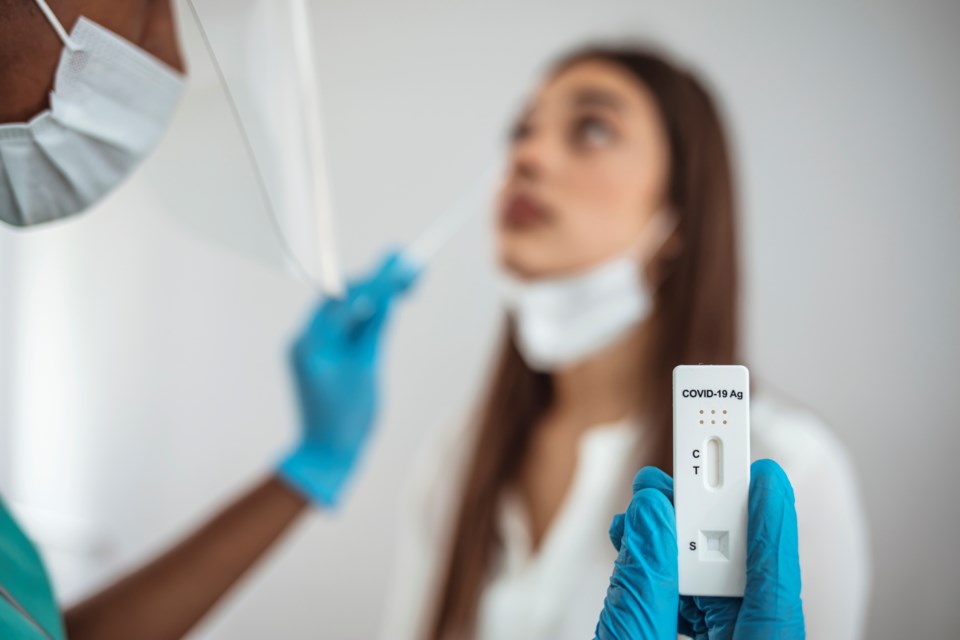Sammy Losee isn’t what you would call a patient person.
“I hate waiting for things,” she said with a laugh.
So when the 43-year-old Pembertonian was unsure if the splitting headache she was experiencing earlier this month was connected to COVID-19, she jumped at the chance to get a rapid test in Whistler, in lieu of the more common Polymerase chain reaction (PCR) test.
“I was eager to get the results immediately,” said Losee, who noted she got her positive results back in less than 10 minutes. “I work for a childcare centre and it had been a couple days since symptoms started, but the first day or two, I didn’t really know I was experiencing COVID symptoms.”
Losee’s situation exemplifies what advocates argue is one of the main benefits of rapid antigen tests: cutting down on the time it takes to receive results (PCR results generally can take a full day or more), so a patient can enter quarantine and begin notifying potential exposures sooner. For essential workers like Losee, that extra time can be crucial. As it stood, because health authorities still require a PCR test if a patient receives a positive rapid test result, as the antigen tests are considered less accurate, contact tracing didn’t begin in Losee’s case until Feb. 9, a full week after she last worked at the childcare centre.
“It doesn’t [cut down on contact tracing time] but it does allow people to have knowledge of potential exposure,” she said of the rapid test, which she wants to see adopted on a wider scale.
“It gives you a faster idea if you are positive, so that you can make the changes necessary to nip it in the bud as quickly as you can.”
With coronavirus cases on the rise locally at the time, B.C.’s Ministry of Health began rapid testing in Whistler the last weekend of January as a trial, and continues to administer them.
In an email to Pique, the ministry said rapid testing is used in outbreak response, “and B.C.’s Medical Health Officers can pilot or otherwise use rapid [point-of-care] testing in additional settings where risk of transmission is higher and people are more vulnerable to infection.”
Although not favoured as a single test for active infection, because the rapid antigen test is quicker, cheaper, and easier to administer, typically as a nasal or throat swab, some experts recommend it as a broad approach, with several countries turning to rapid testing as they struggled to contain the second wave of the virus.
Another key distinction of the rapid antigen test is that, although not diagnostic, it is “meant to screen people who may not be aware of their infection,” the health ministry explained, an important resource for communities with younger populations such as Whistler.
“The thing with the antigen test, it’s confirming people that are infectious,” said Whistlerite Philip Johnson, who contracted the virus in late January and has been a vocal advocate for rapid testing. [Since March 2020, he has also been an investor in Sona Nanotech, a Nova Scotia-based firm that has been approved to manufacture rapid tests for the European Union.]
“With the PCR test, it’s just confirming that you’ve had or have COVID. I know people are going into isolation, missing two weeks of work because they’ve had COVID and aren’t infectious anymore. So that’s where the PCR test is actually not great for containing an infectious disease, because it’s not testing for people who are infectious. It’s just finding people who have COVID in their systems.”
As of Feb. 8, B.C.’s health ministry has made 277,446 rapid tests available to health authorities to use, and, for the most part, that has taken the form of pilot projects in settings such as schools, correctional facilities, remote First Nations communities, and long-term care homes. Provincial Health Officer Dr. Bonnie Henry and Health Minister Adrian Dix have pointed to concerns about the test’s accuracy, as well as its potential strain on an already overloaded healthcare system, as reasons for not adopting it more broadly.
Vancouver Coastal Health (VCH) will reassess the need for rapid testing in Whistler on an ongoing basis, the health ministry said.
VCH said in a Feb. 10 release that the spread of the virus within Whistler seems to be slowing compared to recent weeks. Forty-three new cases were identified between Feb. 2 and 8, as well as an additional 24 older cases with earlier symptom onset dates, bringing Whistler’s total caseload for the year to 614.
Meanwhile, the Howe Sound health region, of which Whistler is a part, added 72 new cases for the week ending Feb. 13. The region saw a total of 1,111 COVID-19 cases between Jan. 1, 2020 and Jan. 31, 2021.
Anyone with COVID-like symptoms is advised to first consult B.C.’s self-assessment tool. If you meet the self-assessment criteria or you are still concerned, you should call Whistler’s COVID clinic line at 604-966-1428, between 9 a.m. and 2 p.m. daily, which is also where you can inquire about rapid testing.



